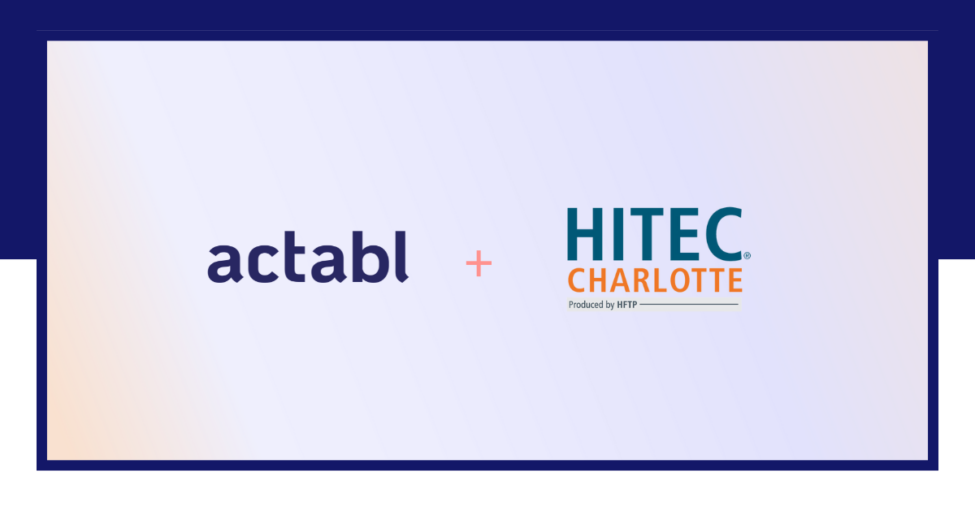
5 Surprising Things I Didn’t Learn About Hotel Tech in School
After graduating with a master’s in hotel administration, I assumed that I had learned about every aspect of the hospitality industry. But as much as hotel technology is prevalent and growing in our world today, there are quite a few things that came as a surprise to me when I started working for ALICE.
Hi! Let me quickly introduce myself. My name is Kenza Sebbar and I am an Enterprise Sales Analyst. After working in a hotel for a couple of years, I realized that the hospitality industry was where I wanted to be, so I decided to pursue a master’s degree at Cornell University’s School of Hotel Administration.
At Cornell, I was able to learn a lot about the hotel industry – from marketing to revenue management. We covered a lot of ground in such a short amount of time, especially with a pandemic that turned our in-person conversations into remote video calls. But when it came to hotel technology, my first real exposure to this rapidly growing sector came with an internship at ALICE.
Here are several surprising things about hotel technology that I didn’t learn in school.
1. Hotel Technology is Still Young
When at Cornell, I heard a lot about Property Management Systems (PMS) – which is software to help manage reservations and administrative tasks at a hotel. Although a vast variety of companies offer PMS systems, my studies primarily focused on the most popular options used by hotels. I did not realize while in school that the hotel technology industry extends way past PMS systems alone.
After working in hotels and recognizing this need for technology, I discovered the hospitality operations platform ALICE and decided to apply for an internship. At ALICE, I realized just how new this need for technology is. Although some hotel technologies have been around for years, the industry has only started showing significant growth and an important increase in the number of players about 7 or 8 years ago.
The hospitality industry has always been a face-to-face industry, a place where staff can connect with guests and make their stay special. Since working at ALICE, I have realized that hotel technology has the power to make each connection faster and simpler while actually enhancing the guest experience.
Most hotels have just recently started to adopt digital solutions that help streamline tasks across departments and enable contactless guest messaging – which was made a necessity during the COVID-19 pandemic.
Because this industry is so new, there is still so much technology that hasn’t been created. There are still so many ways technology can facilitate hotel operations and create genuine guest connections while avoiding any miscommunication and having all staff being on the same page.
2. This Industry Relies on Pen and Paper (still!)
With advancements in technology, it is hard to imagine many processes in any industry that still utilize pen and paper methods for tracking notes and tasks. Even after my own experience working in hotels, I have been shocked to learn how many hotels still operate with lots of paper documentation to carry out everyday operations.
In school when walking into a lecture hall or a classroom, it would be rare to come across any student that has a pen and paper in hand to take notes. So, why would these students backtrack and use pen and paper in their full-time hospitality jobs?
I recently worked with our team and the exceptional staff at The Royal Mansour Marrakech to capture a case study about the luxury hotel’s experience with the ALICE platform. And I was thrilled to hear how our technology replaced the need for a lot of papers – preventing loss of documents. Even the world’s leading hotel guest experiences can be elevated with technology.
3. Some hotels have created their own tech
Another thing I didn’t realize in school is how accessible third party technology is to hoteliers. Looking back on my time working in a hotel, I learned that many of these large brands have created their own digital solutions to help operations in their hotels.
One of the issues I have observed is that technology developed by a single property or hotel group might lack the depth of functionality to be effective. For example, some custom solutions may not be able to connect with all departments, or record housekeeping room cleans, or support a guest communication system.
In addition, as hotels create their own platform, it can end up being a large task on top of managing hundreds of locations and staff. The development process gets drawn out – which means properties may wait years before implementing new technology that they need in real-time. These programs that hotel groups have created are successful and effective and a multi-purpose programs like ALICE can bring these existing systems to the next level.
The ALICE suite offers a flexible technology solution with breadth and depth that can be implemented quickly into current practices at a much lower cost than custom tech development.
4. It’s a Small Industry – All About Networking!
I personally don’t think I ever realized how tight the hospitality industry is. Everyone knows everyone, and your years at school should be spent going to networking events and trying to familiarize yourself with all aspects of the hospitality industry through people’s experiences.
I definitely was a little deprived of this while at Cornell because of the pandemic. Typically, Cornell has more of an emphasis on the importance of networking when students can meet in person. However for me – since hotels were not even open and the whole industry was at a standstill – once I graduated, it surprised me just how crucial this growing step is for any career in hospitality.
Because the industry is fairly small, the strength of referrals from fellow hoteliers carries a lot of weight. While at ALICE, I have recognized that hoteliers often call their peers at other properties for recommendations when considering a new tool like operations technology.
I look forward to experiencing the power of this hospitality network in person at this year’s HITEC Dallas event.
5. You Learn as You Go!
The last thing that I will mention is that you learn as you go! When graduating and starting at ALICE, my master’s degree certainly taught me a lot, but of course not everything. Experience can be the best teacher especially in a hotel technology world that is so new.
I’m hopeful that soon, classes about platforms like ALICE will be further integrated into graduate program curriculums and the need for hotel technology will be more widely discussed in school.
An important aspect to remember is that this industry is always changing, so those in it have to keep learning, growing, and adapting with it.
Interested in learning more about ALICE? Schedule a demo!








